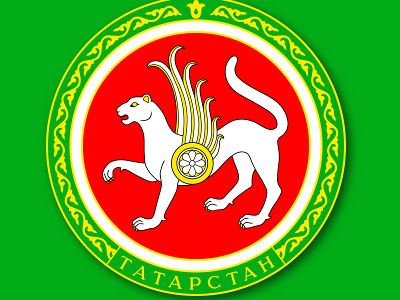Tatarstan’s Online Porn Policies Go Old-School
 KAZAN, Tatarstan – In search of an innovative approach to regulating the internet, officials in the Republic of Tatarstan, a federal subject of Russia, took a page from an old playbook: international conventions signed by Tsarist Russia and the Soviet Union in 1910 and 1923, respectively.
KAZAN, Tatarstan – In search of an innovative approach to regulating the internet, officials in the Republic of Tatarstan, a federal subject of Russia, took a page from an old playbook: international conventions signed by Tsarist Russia and the Soviet Union in 1910 and 1923, respectively.
Roskomnadzor, Russia’s federal information technology and media watchdog group, confirmed the government intends to add 136 domestic and foreign porn sites to Roskomnadzor’s “black list,” effectively banning the sites unless they remove the offending content within three days.
“This is the first time that a single decision by a court contains a requirement to restrict access to such a large number of pornography-orientated websites,” said Roskomnadzor spokesman Vadim Ampelonsky. “Total traffic to these sites is in the millions of visits.”
Thus far, the only site named in media reports has been XHamster.com, which currently has a global Alexa rank of 66.
The accords signed in the early 20[SUP]th[/SUP] Century still are binding on Russia, according to an unnamed representative of the Apastovsky district attorney’s office.
According to a report on GlobalVoicesOnline.org, the Apastovsky District Attorney queried the Russian-language search engine Yandex with the terms “Kazan prostitutes” and “porno video,” then turned over the search engine results to “film experts” at the Ministry of Culture, who then confirmed the sites’ pornographic contents.
While many media outlets are reporting Russia has “banned” online porn, it isn’t yet clear whether the ruling will result in blocking websites across the whole of the country, or only within the boundaries of the Tatarstan.
Among other provisions, under the terms of the “International Convention for the Suppression of the Circulation of and Traffic in Obscene Publications,” the 1923 agreement cited by the Tatarstan court, it is a punishable offense “to make or produce or have in possession obscene writings, drawings, prints, paintings, printed matter, pictures, posters, emblems, photographs, cinematograph films or any other obscene objects” for purposes of trade, distribution or public exhibition.”
The United States was not a signatory to the 1923 convention, but it did sign on to the 1910 “Agreement for the Suppression of the Circulation of Obscene Publications,” as well as the amended version of the agreement, which was ratified in 1949.
The mere existence of an international online adult industry suggests the various signatories to each measure haven’t been too interested in enforcing or abiding by them of late. Signatories include the U.S., Brazil, the Czech Republic (which reiterated its commitment when the republic was formed in 1993), France, Italy, Thailand, Poland, Spain and the U.K., among many others.
Interestingly, prosecutors in the case asserted international treaties take priority over domestic legislation when there is disagreement between the two — a proposition it’s rather hard to believe Vladimir Putin would endorse, should circumstances arise in which he personally prefers domestic policies over those signed by Tsar Nicholas II more than 100 years ago, or any other international treaty signed since then, for that matter.
Russian filmmaker Sergei Pryanishnikov, who in the past has taken the Ministry of Culture to court in an attempt to lift a ban on titles he produced, told Izvestia current Russian law is very vague in terms of what is or isn’t legal to produce and distribute, making it difficult to predict what material will (or won’t) run afoul of the law.
Article 242 of Chapter 25 of Russia’s criminal code certifies the illegal distribution of pornography as one of the “Crimes Against Human Health and Public Morality,” but doesn’t define “pornography” or specify how (or if) it is legal to disseminate pornography. Presumably, if the law targets “illegal distribution,” then some form of legal distribution does exist — theoretically, at least.
This isn’t the only recent “clarification” of Russian policy falling under the auspices of the three-year-old Roskomnadzor agency. Just last week, Roskomnadzor announced it is illegal to publish a meme depicting a public figure in a way that is unrelated to the “personality” of the public figure.









